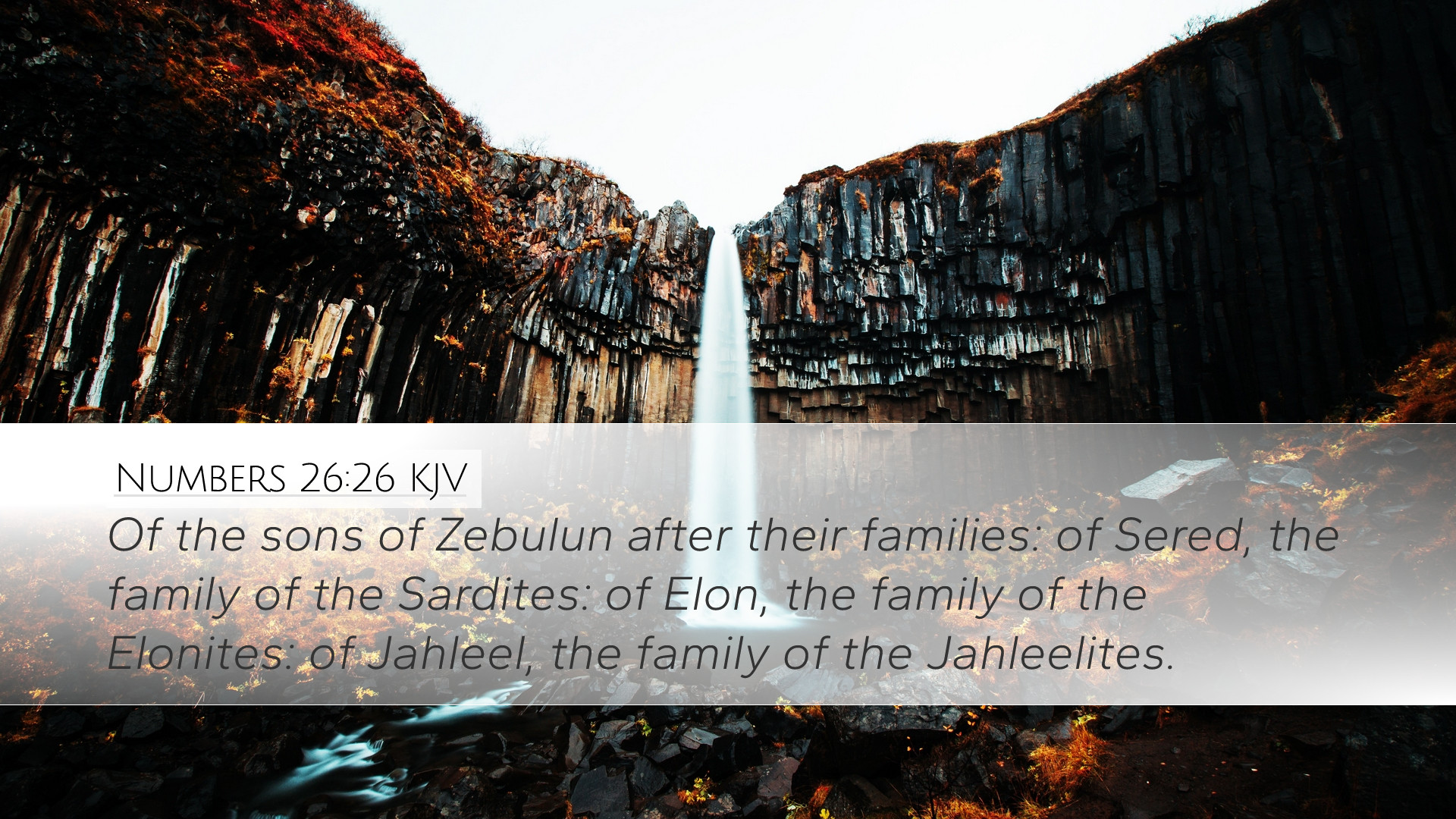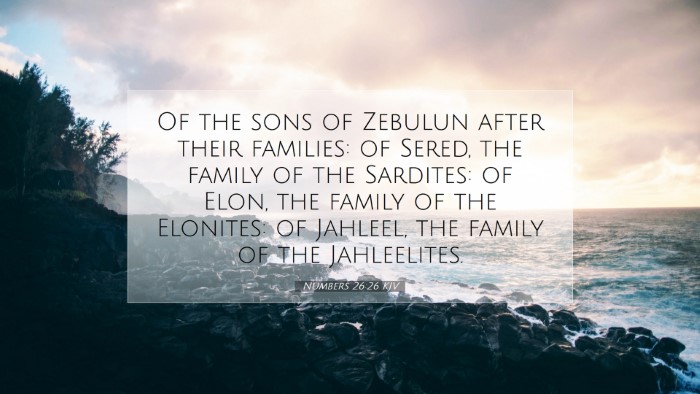Commentary on Numbers 26:26
Numbers 26:26 reads: "The children of Zebulun after their families: of Zebulun, by their generations, after their families, by the house of their fathers, those that were numbered of them, even of the tribe of Zebulun, were fifty and seven thousand and four hundred."
Introduction
This verse is part of a larger context that details the census conducted in the wilderness of Sinai. The count of the tribes serves both administrative and theological purposes, reflecting God's faithfulness to the Israelites and their lineage. Through the examination of Numbers 26:26, we gather insights from notable public domain commentaries.
Summary of the Text
In this specific verse, Zebulun is listed among the tribes of Israel as part of the second census. This was a way to organize the Israelites and validate the promised inheritance of the land of Canaan. The details reflect the families and lineage of Zebulun, emphasizing the importance of genealogy in the Jewish tradition.
Theological Significance
The counting of the tribes not only reflects the numerical strength of Israel but also signifies God’s providence in keeping His covenant. Each tribe had a distinct role in Israel's identity and mission, which is particularly illuminated in the interpretations of various commentaries.
Commentary Insights
Matthew Henry's Commentary
Matthew Henry emphasizes that each tribe, including Zebulun, plays a crucial role in the overall structure of God’s chosen people. He notes:
- Divine Order: The meticulous recording of the tribes demonstrates the divine order and plan. God’s arrangement and classification of His people highlight their significance in His redemptive work.
- Covenantal Emphasis: The census directly relates to God's covenantal promise to Abraham, ensuring that his descendants would be as numerous as the stars (Genesis 15:5). This genealogy serves as a reminder of God’s unwavering commitment to His promises.
Albert Barnes' Notes on the Bible
Albert Barnes offers additional insights focusing on the character of the tribe of Zebulun. He notes:
- Tribal Characteristics: Zebulun is often associated with commerce and seafaring, as implied in Jacob's blessing (Genesis 49:13). Barnes connects the function of Zebulun to the larger mission of Israel, indicating that each tribe had a unique purpose contributing to the welfare of the community.
- Numerical Comparison: The population of Zebulun, 57,400, reflects its growth since the first census (Numbers 1). Barnes contrasts this with other tribes, indicating that growth is a blessing of God, and illustrates God’s continual provision and growth among His people.
Adam Clarke's Commentary
Adam Clarke provides a broader perspective on the census's purpose and implications:
- Census Purpose: Clarke notes that the census is more than mere counting; it is a spiritual reflection on leadership and responsibility. Each counted individual is responsible for the collective mission of Israel to be a light to the nations.
- Historical Significance: The naming of each tribe and family underlines the importance of history and tradition. Clarke asserts that understanding the heritage of the tribes helps clarify the overarching narrative of salvation history played out through Israel.
Application for Today's Believers
The themes presented in Numbers 26:26 resonate deeply with contemporary faith communities:
- Understanding Our Identity: Just as Zebulun had a defined identity within the nation of Israel, believers today are called to understand their identity in Christ, recognizing the gifts and roles they play in the body of Christ (1 Corinthians 12:12-27).
- God’s Faithfulness: The census acts as a reminder of God’s faithfulness throughout generations. Pastoral and ministerial reflections can draw from this theme to encourage congregations about God’s providence and care in their lives.
Conclusion
In conclusion, Numbers 26:26 offers profound insights into the nature of God’s covenant with Israel and His providential care for each tribe. Through the teachings of Matthew Henry, Albert Barnes, and Adam Clarke, we gain a multifaceted understanding of the passage that is applicable for theology, pastoral care, and individual faith journeys today.


